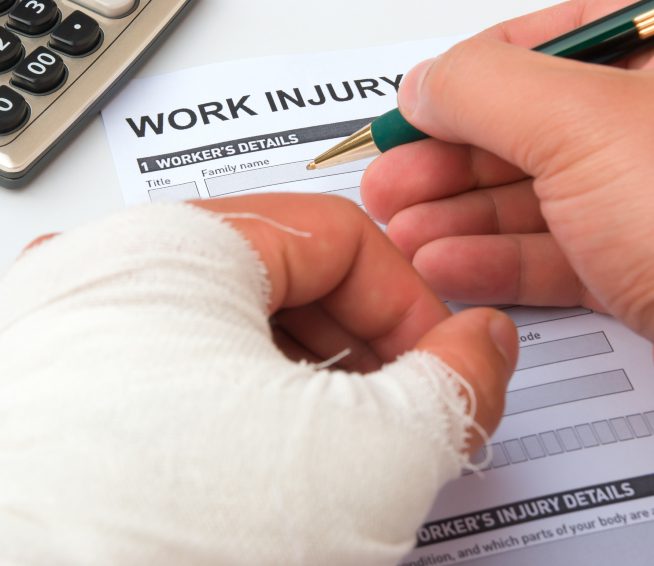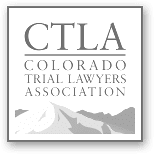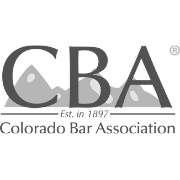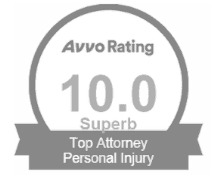
Mintz Law Firm
Workers' Compensation Attorney in Colorado, CO
What This Page Covers:
- Workers' compensation is a crucial insurance in Colorado, CO, offering financial and medical aid to employees injured on the job, covering a wide range of injuries and illnesses caused by work duties.
- Colorado laws mandate that all businesses have workers’ compensation insurance, providing benefits such as medical expenses and wage replacements for injured employees, and specific guidelines determine eligibility and coverage extent.
- Mintz Law Firm specializes in navigating workers' compensation claims, assisting clients with obtaining deserved benefits by leveraging their extensive knowledge and client-centered approach to address each case's unique aspects.
- With strict timelines for reporting and filing claims, Colorado employees are urged to act swiftly post-injury to secure their benefits, and Mintz Law Firm provides the necessary legal support to navigate this complex process successfully.
- Contact us today to schedule a consultation through our contact form or by calling (303) 462-2999.

Employees should be able to be safe at their place of employment and work in a hazard-free environment. Unfortunately, accidents still happen, injuring millions and killing thousands each year. The United States Bureau of Labor reported that there were 5,333 fatal work injuries in 2019, a number that increases almost every year. In that same year, there were 2.8 million nonfatal injuries.
Most workers are entitled to workers’ compensation benefits for a work-related injury or illness, but obtaining funds may be difficult. It is crucial for injured employees to understand how to receive workers compensation benefits to ensure financial stability during recovery. If you have been injured on the job in Colorado, reach out to Mintz Law Firm. Our Colorado workers compensation lawyer will work to obtain the benefits you deserve.
What Is Workers' Compensation?
Workers'’ compensation is a form of insurance that provides financial support and medical care for employees who get hurt or sick because of their jobs. It'’s a safety net that ensures workers aren'’t left struggling with medical bills or lost wages due to injuries or illnesses directly related to their work environment or duties, offering various workers comp benefits such as medical coverage and disability compensation. In essence, if an employee faces health issues because of their work, workers'’ compensation helps cover the costs for their recovery and time off work. Additionally, social security disability insurance plays a crucial role in providing benefits to injured workers who meet specific eligibility criteria.
This system is designed to help both employees and employers. For employees, it offers peace of mind and financial stability during tough times. For employers, it provides a structured way to support their team members without the complication of legal disputes over the cause of the injury or illness. In Colorado, CO, as in other places, workers’ compensation laws are in place to ensure that this support system functions effectively, offering protection and relief to those who need it due to work-related health concerns.
What many injured workers don’t realize is that workers’ compensation is a no-fault system, meaning that someone else does not have to be responsible for your injuries for you to get benefits.
Workers’ Compensation Laws In Colorado
Workers’ compensation laws protect employees when they sustain injuries or an illness on the job as a result of their work duties. All Colorado businesses must have workers’ compensation insurance and maintain it at all times, regardless of how many full-time or part-time employees they have. Businesses can purchase insurance from an agency, much like how they would purchase auto insurance. Employers cannot pass the cost of workers’ compensation to employees, and failure to carry insurance may result in hefty fines.
Colorado laws are specific about the types of benefits injured employees can receive. These benefits might include medical expenses, a portion of your lost wages if you’re unable to work, and compensation for permanent disability if the injury leads to long-term issues. Colorado’s system also provides for vocational rehabilitation in case an employee needs to learn new skills to enter a different field of work due to their injury. It is crucial to file a Colorado workers compensation claim promptly to navigate the complexities of Colorado workers compensation law and ensure fair compensation.
What To Do After An Injury On The Job
There are several things you should do following an on the job injury. First, you need to report the injury as soon as possible. You must notify your employer within four days of the injury in writing. Waiting may jeopardize your workers’ compensation case. Your employer must then notify the insurance company within 10 days of learning about the incident. The insurer will then assess the workers’ compensation claim and either deny or approve it.
Photographing the injury and accident scene may help your case, as well. You should also keep notes on everything you said when reporting the injury and everything your employer did in response. Keep track of any witnesses and ask them if they saw anything that could have contributed to the accident. Once you report the injury, you should seek medical care. The employer determines which clinics are authorized to treat its injured workers. Even if you feel physically fine or show no external injuries, you do not want to risk complications later and miss out on financial compensation.
Remember, you have the right for a doctor of your choice to examine you in addition to the one your company provides, but the employer or insurance carrier does not have to pay for that examination. However, if your employer does not direct you to an authorized medical provider, then it may lose the right to select who treats you. You should never delay medical assistance.
Who Does Workers’ Compensation Insurance Cover?
Under Colorado law, nearly everyone hired to perform services for pay is considered an employee. However, there are exceptions, which include:
- Casual maintenance or farm work for less than $2,000 yearly
- Independent contractors
- Part-time domestic workers
Colorado employers with one or more full- and part-time employees must have workers’ compensation coverage. However, although injuries are covered regardless of fault, compensation may be reduced if the worker’s injury resulted from willfully failing to use safety devices, following protocol, or being under the influence of drugs or alcohol. A Colorado workers’ compensation lawyer can help you determine your coverage under workers’ compensation if you are an injured employee and unsure of your eligibility.
What Injuries Are Covered Under Colorado's Workers’ Compensation Laws?
Colorado workers’ compensation laws cover any injury that occurred while the worker was on duty. It also covers illnesses caused by exposure to poor air quality, allergens, or harmful substances. Common injuries covered under workers’ comp include:
- Torn meniscus
- Broken bones
- Torn rotator cuffs
- Carpal tunnel
- Bulging discs
- Head injuries
- Hernias
- Cancer
- Exposure to asbestos
- Chronic obstructive pulmonary disease
- Anxiety disorder
- PTSD
- Concussion
Nearly all kinds of injuries and illnesses related to the workplace are covered under workers’ compensation. However, there are exceptions regarding when these injuries or illnesses are no longer covered. Injuries are no longer covered if:
- Workers injured themselves or another purposely
- The worker was injured during a social or athletic event that was not considered part of their work-related duties
- A worker was injured by an act of God (referring to events outside of human control or foresight)
- The worker was horseplaying at the time of the injury
If you are unsure whether the circumstances of your injury or illness are covered under Colorado’s workers’ compensation, contact a workers’ compensation attorney who can help you understand your legal options.
Types of Workplace Injuries and Accidents
Workplace injuries and accidents can occur in various forms, affecting different parts of the body and having distinct consequences. Understanding the types of workplace injuries and accidents is crucial for workers, employers, and insurance companies to provide fair compensation and ensure a safe working environment.
Common Types of Workplace Injuries in Colorado
Colorado workers may experience various types of workplace injuries, including:
- Musculoskeletal Disorders (MSDs): Injuries affecting muscles, tendons, and ligaments, often caused by repetitive tasks, heavy lifting, or poor posture.
- Cuts and Lacerations: Injuries resulting from sharp objects, tools, or equipment, which can lead to infections or permanent scarring.
- Head and Brain Injuries: Traumatic brain injuries (TBIs) or concussions caused by falls, equipment malfunctions, or vehicle accidents.
- Back and Spinal Cord Injuries: Injuries affecting the back or spinal cord, often resulting from heavy lifting, falls, or equipment malfunctions.
- Amputations: Loss of limbs or digits due to equipment malfunctions, accidents, or poor safety protocols.
- Burns and Electrocution: Injuries caused by exposure to heat, flames, or electrical currents, which can result in severe burns or cardiac arrest.
Understanding these common types of workplace injuries helps in recognizing the risks and implementing safety measures to prevent them. It also ensures that injured workers receive the fair compensation they deserve for their injuries.
What Benefits Are Covered Under Workers’ Compensation?
While specifics can vary slightly depending on the situation and the state laws in Colorado, the core benefits provided under workers' compensation insurance are designed to alleviate financial and medical strains during your recovery period. Key benefits that are generally covered include:
Medical Benefits
Workers’ compensation pays to cover medical expenses related to the work-related injury. Medical benefits generally include:
- Doctor’s visits
- Hospital stays
- Medical supplies
- X-rays
- Medication
- Physical therapy
If medical expenses are needed to treat and assist in the injured worker's recovery, they will generally be covered under workers’ comp.
Temporary Disability Benefits
Injured workers are entitled to wage loss benefits, including temporary partial disability benefits, if they are unable to work or are working but earning less due to their work restrictions.
Permanent Partial Disability
Workers receive permanent partial disability benefits because their injury limits their capacity to work, even if they are still able to go to work.
Permanent Total Disability
Permanent total disability benefits equate to two-thirds of the worker’s income at the time of the injury and are distributed when a worker is so severely injured that they can no longer work in any capacity.
Death Benefits
In the unfortunate event that a work-related injury or illness causes a death, the surviving family members can receive two-thirds of the deceased’s weekly wages, along with coverage for funeral and burial expenses.
What Are the Common Causes Of Workplace Accidents?
Numerous factors can cause workplace accidents, ranging from a slippery floor to mishandling of hazardous materials, and several variables can contribute to or influence an accident. Some of the most common causes of workplace accidents include:
- Lifting: Employees are prone to sprains, strains, or tears when lifting heavy objects.
- Auto Accidents: For many employees, driving is part of their job. If you are injured in an auto accident while driving for work, even if you received the ticket for the accident, you may be eligible for workers’ compensation benefits.
- Poor lighting: Inadequate lighting accounts for numerous workplace accidents every year.
- Falls: Slick corridors, floors, and highly trafficked areas can cause an employee to slip or trip and fall. Falls from height, such as from scaffolding or on construction sites, can also lead to serious injuries.
- Hazardous materials: Improperly handling hazardous materials or not wearing personal protective equipment (PPE) can cause burns or other severe injuries.
Ultimately, any harm you sustain at work may be eligible for workers’ compensation benefits, and because workers’ compensation is considered a “no-fault” system, you do not have to prove that your injury was caused by the negligence of someone else to receive worker’s compensation benefits. If you are unsure or have questions, contact a Colorado, CO workers’ compensation attorney today.
Navigating Disability Benefits: Understanding Temporary And Permanent Disability
When an injury disrupts your life, understanding the intricacies of disability benefits becomes crucial. In Colorado, the workers' compensation system offers various forms of support, each serving a specific purpose in aiding your recovery. These benefits consist of the following:
- Temporary Total Disability (TTD): TTD serves as a financial lifeline when a doctor deems you unfit for work or your employer cannot accommodate your restrictions. Represented by two-thirds of your average weekly wage, TTD ensures you receive essential income during your recovery.
- Temporary Partial Disability (TPD): TPD steps in when you return to work but face reduced wages or modified hours due to your injury. The amount of TPD is calculated based on the difference between your pre-injury pay and what you currently earn. Always keep your adjuster informed about any deviation from your pre-injury wages.
At Mintz Law Firm, our team of dedicated professionals is committed to ensuring you comprehend your rights and receive the compensation you deserve.
What Is The Time Limit To File A Workers’ Compensation Claim In Colorado, CO?
When you’re injured at work or start noticing signs of a workplace injury, the clock starts ticking. In Colorado, injured workers have two years from the date of their injury or date of discovery to file a workers’ compensation claim. However, it’s critical that workers file their claim as soon as possible, or they may risk losing their right to benefits. Furthermore, there are other deadlines that injured workers need to be aware of to protect their right to workers’ compensation.
1. Deadline to Report Your Injury in Writing
When you sustain a workplace injury, you have four days to report your injury to your employer in writing. Waiting longer than four days means risking the possibility of losing benefits for each day you’re late in reporting your injury.
2. Deadline Your Employer Has to Report Your Injury to Their Insurer
If you report your injury within the allotted four days, your employer has 10 days from the date you reported the injury to their insurance company. If your employer has workers’ compensation, their insurers are responsible for reviewing, approving, or denying your claim.
3. Deadline for Approval or Denial of Your Claim
After your employer files a report of your injury, their insurance company has 20 days to approve or deny your claim for benefits. If your claim is denied, you will receive a “notice of contest” in the mail.
4. Deadline to Apply for an Expedited Hearing
If you receive a notice of contest in the mail, you have 45 days from the date of mailing to file an application for an expedited hearing. Filing this application is the first step in the appeals process to have your claim reexamined and try to overturn the denial.
Workers’ compensation insurance companies routinely deny employees’ valid claims without proper justification. Injured workers benefit from the assistance of attorneys who understand the complexities of these claims and the common errors workers make that create problems for their claims. Hiring a Colorado workers compensation lawyer can provide the necessary support to navigate these challenges and secure the benefits you are entitled to.
5. Deadline to Object to a Final Admission of Liability
In the event that you are awarded benefits through a Final Admissions of Liability but the benefits are less than the value of your claim, you have 30 days to object to an insurance company’s decision. This applies to awards issued with and without filing an application for an expedited hearing.
Insurance companies aim to limit their payout, which means they routinely attempt to award injured workers less than the true value of their claim. It’s essential that workers understand their benefits so they are not accepting lowball offers.
6. Deadline to File a Personal Injury Claim
After suffering a workplace injury, filing for workers’ compensation is not necessarily the only option available. Benefits are limited, and they may not cover the true extent of the damages you’ve suffered. If you are considering pursuing a personal injury claim against a third party, you have two years to file that claim unless you are injured in a motor vehicle accident. In this case, you have three years to file that claim.
Navigating Colorado Workers' Compensation: Essential Resources
Workers' compensation is a critical safety net that provides support for employees who suffer job-related injuries or illnesses. Essential resources that can help individuals navigate workers’ compensation include:
Colorado Division of Workers' Compensation (CDLE)
The Colorado Department of Labor and Employment (CDLE) oversees the Division of Workers' Compensation, which administers the state's workers' compensation system. Their official website offers a wealth of information, forms, and guides that outline the workers' compensation process, rights, and responsibilities for both employees and employers.
Independent Medical Examinations (IME)
In some cases, injured workers may be required to undergo an Independent Medical Examination (IME) to assess their condition. The CDLE provides information about IMEs, their purpose, and how they impact workers' compensation claims.
Workers' Compensation Insurance Coverage
Employers in Colorado are generally required to carry workers' compensation insurance to provide coverage for employees. The CDLE offers information for employers on insurance requirements, policy options, and how to secure proper coverage.
Legal Resources and Assistance
Navigating the workers' compensation system can sometimes become complex, especially if disputes arise. The CDLE website provides information on accessing legal assistance and resources for those seeking help in resolving issues related to claims or benefits.
Workplace Safety Resources
Prevention is key to reducing workplace injuries. The CDLE also offers various resources for both employers and employees to enhance workplace safety, including guidelines, training programs, and information on creating a safe work environment.
The Workers’ Compensation Claim Process
Navigating the workers'’ compensation claim process in Colorado can seem daunting, but understanding each step can help ensure you pursue compensation and receive the benefits you deserve. Here'’s a comprehensive overview to guide you through:
- Reporting the Injury: The first and most crucial step is to report your injury or illness to your employer as soon as possible. While verbal notification is acceptable, it’s highly recommended to document your report in writing to avoid any potential disputes later on. This written notice serves as a formal record of your injury, which is essential for your workers’ compensation claim.
- Filing a Claim: After notifying your employer, the next step is to file a workers’ compensation claim with the Colorado Division of Workers’ Compensation. This involves completing a claim form and submitting it either to your employer or directly to the Division. This formal filing initiates the official process of your workers’ compensation claim.
- Medical Treatment: Seeking medical treatment promptly is vital. Your employer or their workers’ compensation insurance company may require you to visit a specific doctor or medical provider. Ensure you follow these guidelines to avoid complications with your claim. Proper medical documentation of your injury or illness is crucial for substantiating your claim.
- Lost Wage Benefits: If your injury or illness prevents you from working, you may be entitled to lost wage benefits. These benefits are designed to replace a portion of your lost wages during your recovery period. It’s important to keep detailed records of your lost wages and any work restrictions provided by your healthcare provider.
- Insurance Company Review: Once your claim is filed, the insurance company will review it to determine your eligibility for benefits. They may request additional information or documentation to support your claim. This review process is critical, as the insurance company’s decision will impact the benefits you receive.
- Appeal: If your claim is denied or you disagree with the insurance company’s decision, you have the right to appeal. This involves filing a petition with the Colorado Division of Workers’ Compensation and attending a hearing. An experienced workers’ compensation attorney can be invaluable during this process, helping you navigate the complexities of the appeal and advocating for your rights.
Understanding these steps and following them diligently can significantly impact the outcome of your workers’ compensation claim. If you encounter any challenges or have questions, consulting with a knowledgeable workers’ compensation attorney can provide the guidance and support you need.
Why Choose Mintz Law Firm?
When it comes to navigating the complexities of a workers' compensation claim, having a reliable and experienced ally by your side can make all the difference. Mintz Law Firm emerges as the top choice for individuals seeking comprehensive support that helps them obtain the rightful compensation they are owed.
Unmatched Expertise
Mintz Law Firm boasts a team of seasoned professionals with a deep understanding of workers' compensation laws in Colorado. Our attorneys bring a wealth of experience, ensuring that every aspect of your case is meticulously addressed. We specialize in unraveling the intricacies of workers' compensation, offering you guidance based on a profound knowledge of the legal landscape.
Client-Centric Approach
At Mintz Law Firm, we prioritize your well-being. Our client-centric approach is rooted in a genuine commitment to understanding your unique circumstances and tailoring our strategies to suit your needs. We recognize that each case is different, and our personalized attention ensures that you receive the support and representation you deserve.
Proven Track Record
Our firm's track record speaks volumes about our dedication and prowess in securing favorable outcomes for our clients. We have successfully represented numerous individuals in workers' compensation claims, earning a reputation for excellence in the legal community.
Clear Communication
We understand that the legal process can be overwhelming. Mintz Law Firm prides itself on maintaining transparent and open communication with clients. We ensure that you are well informed at every stage of your case, providing clarity on legal proceedings and empowering you to make informed decisions.
Speak To Our Experienced Workers’ Compensation Attorneys In Colorado, CO
Too many accident victims do not report their workplace injuries out of fear of their company terminating them. However, Colorado makes it illegal to do this. At Mintz Law Firm, our Colorado workers’ compensation attorneys can help you obtain the medical care, lost wage benefits, and permanent disability benefits you are entitled to. We will fight and negotiate on your behalf to ensure you receive a fair settlement.
Let us help you get back on your feet. Call (303) 462-2999 or complete our contact form to schedule a free consultation with a workers’ compensation attorney.
References

contact us
schedule your free consultation






